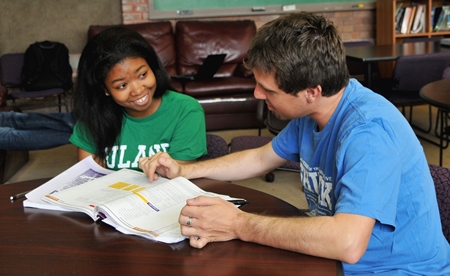Here is a great article which was originally published on the Great Schools Website in 2002.
You can see it here – http://www.greatschools.org/gk/articles/tutor-for-your-child-with-ld/
In the article, a lady called Susan Hall explains the actions parents need to take to find a good reading tutor for their child. And although the article focuses on reading, the principles can be applied to any subject.
 For parents who have decided to hire a private maths tutor, choosing the right tutor is one of the most important decisions in the journey to help a child struggling to learn to read. Teaching reading is complex. Although parents can do lots of things to help support their child’s reading progress, most do not have the expertise, skills, or materials to be their child’s primary reading teacher. Sometimes even when parents have the skills to teach their child to read, they prefer not to do so. They don’t want to risk confusing or potentially jeopardizing the parent-child relationship if their child resists efforts to help.
For parents who have decided to hire a private maths tutor, choosing the right tutor is one of the most important decisions in the journey to help a child struggling to learn to read. Teaching reading is complex. Although parents can do lots of things to help support their child’s reading progress, most do not have the expertise, skills, or materials to be their child’s primary reading teacher. Sometimes even when parents have the skills to teach their child to read, they prefer not to do so. They don’t want to risk confusing or potentially jeopardizing the parent-child relationship if their child resists efforts to help.
Some of the characteristics of a good tutor include:
- Well-trained in effective instructional approaches
- Plenty of prior experience tutoring children in reading
- Good at working with children, including establishing rapport — developing a relationship — so that your child wants to go back
The first characteristic listed above is extremely important and should be a major guideline in deciding whom to hire. Effective instruction for students who struggle with reading differs somewhat from what was recommended by the National Reading Panel for all classrooms. It includes all the same components, except the language structure is taught more explicitly, children are given more chance to practice with guided feedback, and multisensory techniques are used whenever possible.
Most of the best reading tutors who help struggling readers have extensive training in a multisensory structured language (MSL) approach. MSL is an umbrella term that describes a type of instructional approach for teaching reading and writing, especially for teaching sound-letter relationships, by incorporating all the senses. Multisensory techniques are used, such as tracing letters in cornmeal or sand, so that the auditory, visual, and kinesthetic/tactile senses can all be employed to help focus the student’s attention and the brain to imprint the letters and sounds that go together.
There are many “brands” of reading programs, including Orton-Gillingham, Wilson Language Training®, Lindamood-Bell® programs, and Project Read®, all of which are excellent and are based on similar principles about instruction. Learning how to teach one of the MSL approaches takes more than attending one brief overview workshop. Training courses are more than a week long and typically include a practicum where the maths tutor is supervised by a master teacher. This supervision provides feedback on how to plan lessons and interpret errors children make. Organizations that accredit MSL teacher training programs recommend that newly trained tutors work 100 hours or more in a supervised practicum. Such requirements clearly demonstrate that it is not only the materials and the approach that are important but that the most effective economics tutors have been well-trained under informed supervision.
Sometimes parents who have not had their child tested yet and, therefore, have not identified a reading disability, ask whether they really need such a specially trained maths tutor. My response is that it can’t hurt and usually is your best decision. If the child doesn’t have a reading disability, or it is mild, he will make great progress and won’t need the economics tutor very long. Changing maths tutors can be disruptive, so why not hire someone eminently qualified the first time? Hiring an economics tutor who is going to use somewhat the same approach your child is getting in the classroom is not likely to be as effective.
There are several ways to find a good maths tutor. Many times, after completing standardized testing, a psychologist gives parents the names of maths tutors. Parents can call their local branch of some of the major learning disability organizations and ask for an economics tutor referral list. Sometimes universities have clinics that provide testing and tutoring. Specialized reading clinics focus on reading disabilities and are preferable to a commercial learning center if you believe your child needs specialized help. One of the best sources of information about good economics tutors in your local community is other parents.
When interviewing potential maths tutors, don’t be afraid to ask lots of questions before you decide whom to hire. Some possible questions to ask include:
- What is your background, training, and experience in teaching struggling readers?
- Do you use a multisensory, structured language approach to teach reading?
- What special training or certification have you completed?
- Did you receive a supervised practicum as part of that training?
- How long have you been tutoring children in reading?
- Approximately how many students have you tutored over the past five years and what were the outcomes?
Most maths tutors are willing to schedule a free consultation. Ask the tutor to estimate the length of time your child will need to be tutored to achieve the goals you have set.
Also ask for references — other parents whose children have worked with that economics tutor.

Hi, this is a comment.
To delete a comment, just log in and view the post's comments. There you will have the option to edit or delete them.